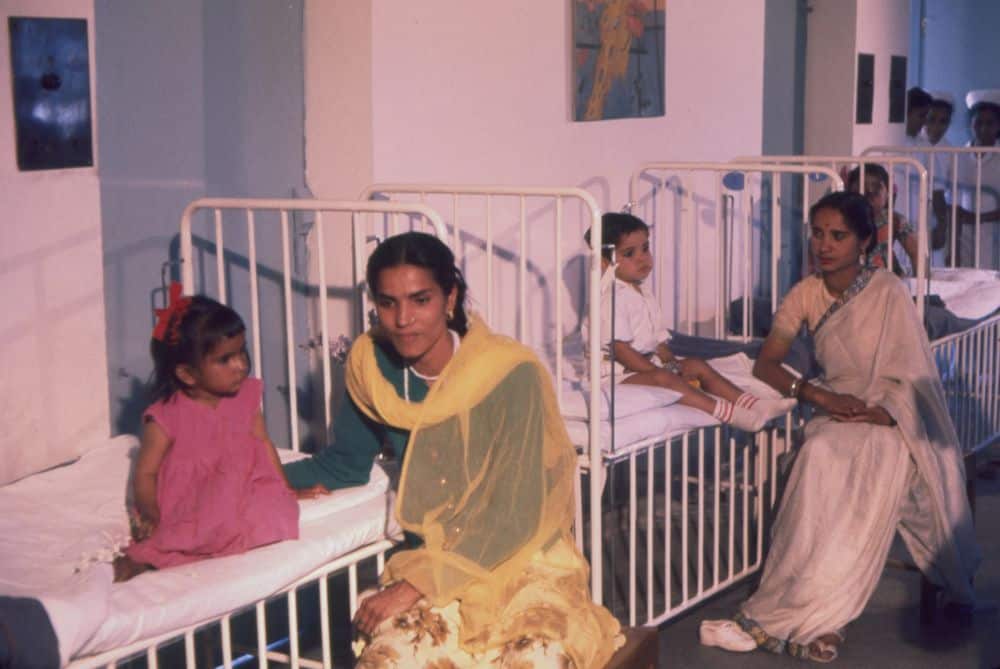There are two kinds of childbirths, a ‘normal’ childbirth – vaginal – and a ‘lower section caesarean section’, more commonly known as a C-section.
A C-section is a surgery performed to deliver the baby through an incision made on the stomach and the womb. It involves expensive medical bills and the possibility of a medical emergency. The choice between a normal childbirth and a C-section is a burden on every expecting woman for many reasons, primarily, the side effects, the risks and the costs.
In 2019, experts said that India may soon have the ‘most caesarean births in the world.’ While a C-section should be executed only when there is a medical emergency or other complications, who decides this and who monitors these decisions, is something we need to examine.
False medical advice?

In September, Shanti*, a nurse in a reputed hospital in Ghatkopar, received a call from her brother asking her to come to the private nursing home where her sister-in-law Meena* was admitted. She was told that there were complications with her labour. When she got there, she was told that the doctors were attempting a C-section and needed the family to make a decision and sign on the consent form. The cost in this nursing home was Rs 25,000 for a normal delivery and 65,000 rupees for a C-section. This expenditure would have resulted in great financial strain for the family, who could not afford it.
Alleging health risks to both the mother and the baby, the family was informed that the baby had passed stool inside the womb and, hence, the doctors would have to operate immediately.
When Shanti visited her sister-in-law, she was shocked to witness the condition she was in. The cervix was fully dilated and the baby’s head was in the pelvic region. “It was kind of stuck”, she said. Meena was not attached to an IV line, so if something untoward were to happen, there was no way to give emergency injectables. For normal deliveries, pitocin – a natural hormone – is injected to induce labour, help with contractions and create space for birth. Shanti noticed that the pitocin drip was not started for Meena since the decision for the C-section was already made. Her observations came as a surprise to the doctors who were not aware she was a nurse.
Ultimately, the baby was delivered within 15 minutes, but after delivery, Shanti looked for some indication of the stool in the womb, but there was none. Happy that she had reached the nursing home in time to avoid any disasters, she didn’t pursue the matter any further.
Read more: Mumbaikars speak up about the city’s healthcare budget
Are public hospitals more ethical?
Both my deliveries were in military hospitals. My first delivery was normal and the second one a C-section. For the first delivery, I went into the labour room after my water broke and the delivery was executed in less than three hours from the time I got admitted. The second delivery was a C-section but the doctors tried for around six-to-eight hours for normal delivery. In my own experience, private hospitals do not wait for a normal delivery. They ask you to either go ahead with a C-section directly, or induce pain, wait for an hour, and then move on with a C-section.
This, of course, appears to be just one of several questionable practices that I have encountered in private hospitals. For example, most of my routine checkups were done at private hospitals, and I’ve noticed that they do not prescribe generic drugs which would cost at least 25% less than the branded equivalents. Instead, they promote costly supplements, quoting healthy pregnancy, lactation, bone density etc as benefits, over nutritious food and organic produce. I’ve observed that if you change your doctor between the pregnancy, they ask you to get the investigations done again from the lab of their choice, which is an additional cost.
Lack of audits
According to the National Family Health Survey (NFHS 2019-2020), Mumbai has seen a 39.1% rise in C-section deliveries. While Dr Danny Laliwala, Consultant, department of Obstetrics and Gynaecology has attributed this to a rise in high risk pregnancies, with complications ranging from hypertension to infertility, and fears surrounding labour pains, he also claims that that doctors often suggest C-sections to reduce time. He adds that C-sections are not safe for women’s health.
As an expecting mother nears her third trimester, from what I’ve observed, many doctors begin preparing them for a C-section, and sometimes they propagate it. Instead, a doctor should inform families about the safety and efficacy of C-sections, during and after delivery, should they wish to opt for it.
Deliveries in nursing homes, private and public hospitals need to be monitored. Currently, there are no audits on C-section deliveries in private hospitals, and if the NFHS data is any indication, medical practices in gynecology need to be monitored. The National Accreditation Board for Hospitals & Healthcare needs to be more involved.
*names changed.